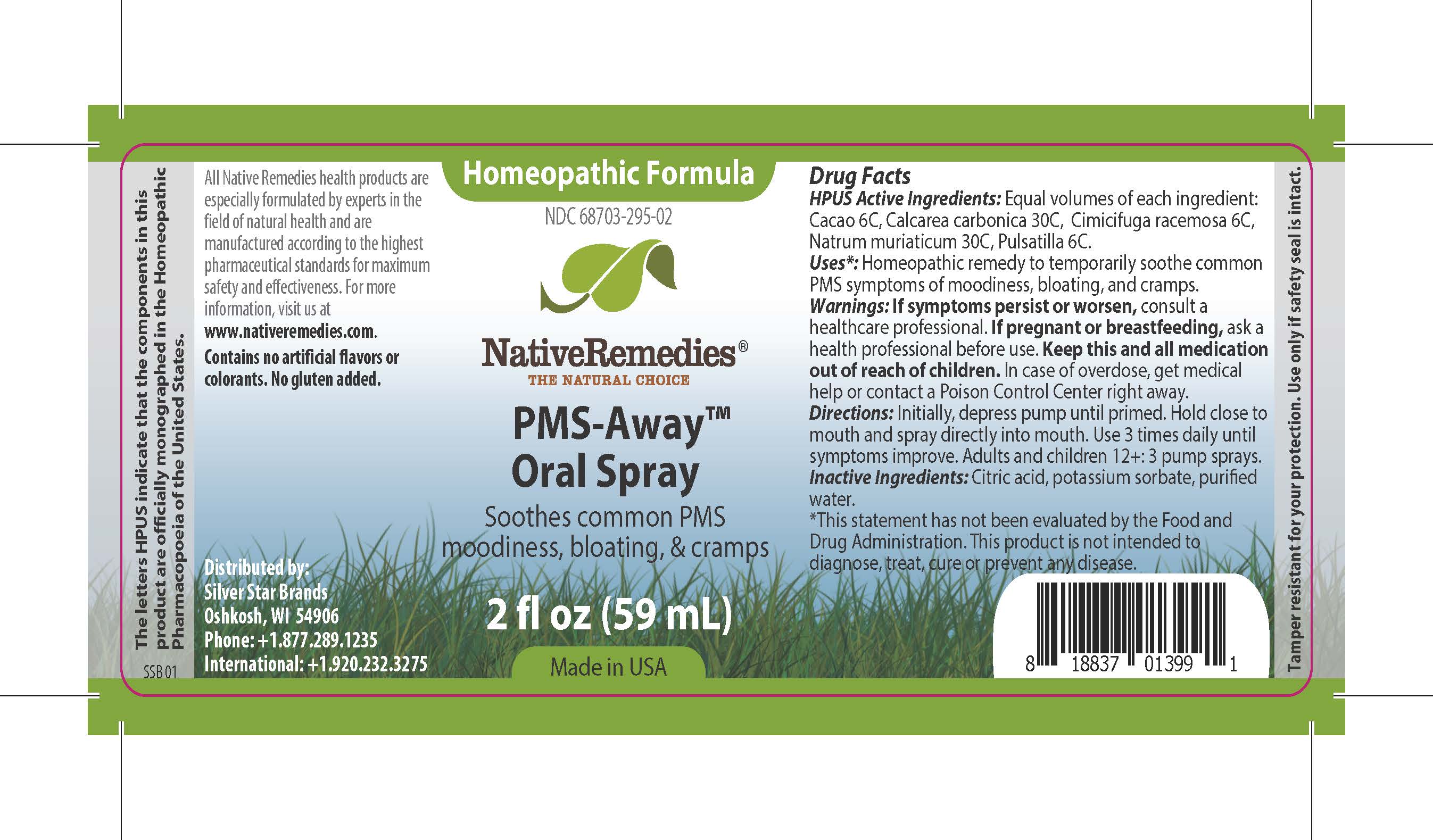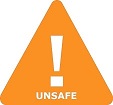Pms-away | Cacao, Calcarea Carbonica, Cimicifuga Racemosa, Natrum Muriaticum, Pulsatilla Spray while Breastfeeding

What is Pms-away | Cacao, Calcarea Carbonica, Cimicifuga Racemosa, Natrum Muriaticum, Pulsatilla Spray ?
Brief: Soothes common PMS moodiness, bloating & cramps
Can I use Pms-away | Cacao, Calcarea Carbonica, Cimicifuga Racemosa, Natrum Muriaticum, Pulsatilla Spray while breastfeeding?

Note: Due to high dilution of active ingredients in homeopathic medicines most homeopathic medicines are safe while breastfeeding.
Pms-away | Cacao, Calcarea Carbonica, Cimicifuga Racemosa, Natrum Muriaticum, Pulsatilla Spray Breastfeeding Analsys
Black cohosh while Breastfeeding
UnsafeRizomes and roots are used. It contains saponids, phytoestrogens, and other substances. Attributed effect: estrogenic stimulation. Indications according to Commission E of German Ministry of Health: pre-menstrual dysmenorrhea, menopause. Maximal daily dose: 40 mg of drug equivalent. Do not use it for longer than 6 months Estrogen-agonist may decrease breast milk production and alter its composition.
Cocoa while Breastfeeding
SafeCAS Number: 8002-31-1
Cocoa contains theobromine (Dimethyl-3,7-xanthine), a caffeine derivative with a less neuro-excitability effect. In those cases of maternal overuse (more than 400 g a-day) irritability or colicky pain may appear in the infant. 100 g of chocolate contains 120 to 230 mg of theobromine and 20 to 30 mg of caffeine.
Calcium cation while Breastfeeding
SafeVarious calcium salts (Acetate, Carbonate, Chloride, Citrate, Phosphate, Gluceptate, Glucobionato, Lactate, Laxctobionato Pidolate, Silicate) are used in the management of hypocalcemia, supplements for treating calcium deficiency states and antacids ( Carbonate and Silicate) Daily requirement of calcium during lactation are 1 g (1.3 g in children under 20 years).Calcium supplements in the diet does not affect the concentration of calcium in milk.Excessive intake of calcium is not good for health. During lactation, consumption of calcium should not exceed 2.5 g a day. WHO List of Essential Medicines 2002 states that it is compatible with breastfeeding.
Sodium chloride while Breastfeeding
SafeCAS Number: 7647-14-5
Sodium chloride either as cooking salt, or, as oral rehydration solution, or, as IV fluid, is entirely compatible with BF.
Pms-away | Cacao, Calcarea Carbonica, Cimicifuga Racemosa, Natrum Muriaticum, Pulsatilla Spray Breastfeeding Analsys - 2
Black cohosh while Breastfeeding
CAS Number: 84776-26-1
Black cohosh (Cimicifuga racemosa, formerly Actaea racemosa) root was thought to have mild estrogenic activity based on its triterpene content, which is standardized based on 27-deoxyactein. However, recent studies have found no estrogenic activity.[1][2] It is primarily used for postmenopausal symptoms and has been used to promote labor.[3][4][5][6][7][8] Currently, it has no specific uses during breastfeeding, although historically it was supposedly used by native American women as a galactogogue.[9] No data exist on the safety and efficacy of black cohosh in nursing mothers or infants. In general, there is a low frequency of adverse reactions, but dizziness, nausea, headache, rash, vomiting, and rarely, hepatitis and allergic reactions have been reported.[3][10][11] Some sources recommend against its use during breastfeeding because of the lack of safety data and its potential estrogenic activity,[10] while others do not contraindicate its use.[9] Dietary supplements do not require extensive pre-marketing approval from the U.S. Food and Drug Administration. Manufacturers are responsible to ensure the safety, but do not need to the safety and effectiveness of dietary supplements before they are marketed. Dietary supplements may contain multiple ingredients, and differences are often found between labeled and actual ingredients or their amounts. A manufacturer may contract with an independent organization to verify the quality of a product or its ingredients, but that does certify the safety or effectiveness of a product. Because of the above issues, clinical testing results on one product may not be applicable to other products. More detailed information #about dietary supplements# is available elsewhere on the LactMed Web site.
Pulsatilla vulgaris while Breastfeeding
Pulsatilla (Anemone pulsatilla and other related species) contains ranunculin, protoanemonin, and anemonin as well as triterpene saponins and flavonoids. The fresh plant is extremely irritating to the skin, gastrointestinal tract and mucous membranes. Allergic reactions have been reported to pulsatilla. Homeopathic preparations of pulsatilla are reportedly used for sore nipples and mastitis,[1] to reduce an overabundant milk supply,[2] or to increase milk supply.[3] Galactogogues should never replace evaluation and counseling on modifiable factors that affect milk production.[4] No scientifically valid clinical trials support either of these uses. Because of a lack of information, other agents may be preferred in nursing mothers. Dietary supplements do not require extensive pre-marketing approval from the U.S. Food and Drug Administration. Manufacturers are responsible to ensure the safety, but do not need to the safety and effectiveness of dietary supplements before they are marketed. Dietary supplements may contain multiple ingredients, and differences are often found between labeled and actual ingredients or their amounts. A manufacturer may contract with an independent organization to verify the quality of a product or its ingredients, but that does certify the safety or effectiveness of a product. Because of the above issues, clinical testing results on one product may not be applicable to other products. More detailed
Pms-away | Cacao, Calcarea Carbonica, Cimicifuga Racemosa, Natrum Muriaticum, Pulsatilla Spray Breastfeeding Analsys - 3
Pulsatilla vulgaris and Breastfeeding
Low RiskNote: Mostly safe in Homeopathic preparations
What should I do if I am breastfeeding mother and I am already exposed to Pms-away | Cacao, Calcarea Carbonica, Cimicifuga Racemosa, Natrum Muriaticum, Pulsatilla Spray?
Homeopathic medicines usually do not cause harmful effects on breastfed babies. Pms-away | Cacao, Calcarea Carbonica, Cimicifuga Racemosa, Natrum Muriaticum, Pulsatilla Spray is a homeopathic medicine and if your baby does not have any abnormal symptoms then there is nothing to worry about. Some homeopathic medicines contain alcohol (ethanol) and such homeopathic medicines in high dosage can have bad effect on development of baby.
My doctor has prescribed me Pms-away | Cacao, Calcarea Carbonica, Cimicifuga Racemosa, Natrum Muriaticum, Pulsatilla Spray, what should I do?
Homeopathic medicines are usually safe in breastfeeding and if Pms-away | Cacao, Calcarea Carbonica, Cimicifuga Racemosa, Natrum Muriaticum, Pulsatilla Spray has been recommended by doctor then there should be no doubt about its usage in breastfeeding.
If I am using Pms-away | Cacao, Calcarea Carbonica, Cimicifuga Racemosa, Natrum Muriaticum, Pulsatilla Spray, will my baby need extra monitoring?
Not really.
Who can I talk to if I have questions about usage of Pms-away | Cacao, Calcarea Carbonica, Cimicifuga Racemosa, Natrum Muriaticum, Pulsatilla Spray in breastfeeding?
US
National Womens Health and Breastfeeding Helpline: 800-994-9662 (TDD 888-220-5446) 9 a.m. and 6 p.m. ET, Monday through Friday
UK
National Breastfeeding Helpline: 0300-100-0212 9.30am to 9.30pm, daily
Association of Breastfeeding Mothers: 0300-330-5453
La Leche League: 0345-120-2918
The Breastfeeding Network supporter line in Bengali and Sylheti: 0300-456-2421
National Childbirth Trust (NCT): 0300-330-0700
Australia
National Breastfeeding Helpline: 1800-686-268 24 hours a day, 7 days a week
Canada
Telehealth Ontario for breastfeeding: 1-866-797-0000 24 hours a day, 7 days a week
